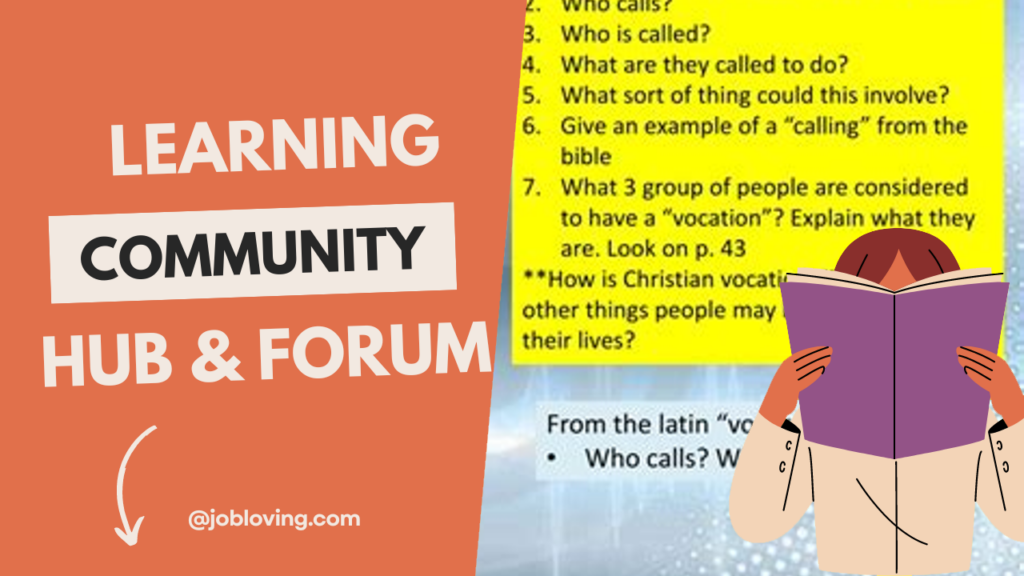Have you ever wondered what it truly means to have a vocation? Is it just another word for job, or is there something deeper at play? A vocation isn’t just a means to pay the bills; it’s often seen as a calling that aligns with one’s passions, skills, and values. Today, let’s decode a few examples of vocations that not only fill your pockets but can also fulfill your soul.
Quick answer: Vocation examples include hairdresser, dental hygienist, computer technician, veterinary assistant, and accountant.
When we dive deeper into what constitutes a vocation, we discover that it encompasses roles requiring specialized skills and training, often tied to one’s life purpose or passion. For instance, a hairdresser doesn’t just cut hair; they contribute to clients’ confidence and self-esteem, transforming their looks and spirits in the process. You have the dental hygienist, who plays a crucial role in promoting oral health, sometimes even saving patients from more serious dental issues down the road. Then there’s the computer technician, that unsung hero who solves our tech nightmares, ensuring we’re all wired and online with a smile. And let’s not forget the veterinary assistant, who not only cares for pets but often serves as an advocate for our fuzzy friends. Lastly, the accountant—the financial wizard who helps individuals and businesses navigate the complex world of numbers. They ensure our financial house is in order, helping us sleep a little easier at night. Each of these roles blends skill with service, making them exemplary vocations.
Ultimately, a vocation is more than just a paycheck; it’s about finding a path that resonates with who you are and what you love. If you’re on the hunt for your own vocation or need more inspiration, remember that the world is brimming with possibilities. Join the JobLoving community for more resources or feel free to ask any questions about this intriguing topic—we’re here to help you find your calling!
Key takeaways about What is a vocation example?
Concept and Definition of Vocation
- Vocation is derived from the Latin “vocare,” meaning to follow God’s voice and calling.
- Many confuse vocation with job or career, limiting understanding of personal and spiritual fulfillment.
- Vocation is a deeply personal calling, distinct from merely pursuing a practical career path.
- A vocation can exist separately from a profession, allowing for diverse expressions of personal passion.
- Understanding the distinction between vocation and profession can alleviate pressure to find the perfect job.
The Process of Discovering Vocation
- College often becomes a pivotal time for students to discern their life’s work and calling.
- Finding one’s vocation often requires introspection, prayer, and reflection on personal passions and skills.
- Researching potential vocational paths can clarify how to align passions with feasible career options.
- The journey to discovering one’s vocation often involves trying different paths and exploring various interests.
- The journey to discover vocation is ongoing, requiring patience, reflection, and openness to change.
The Role of Community and Support
- Successful discernment requires community support, emphasizing the importance of mentorship and fellowship in choices.
- Encouraging young people requires broadening their vision beyond specific careers to embrace God’s plans.
- Education should foster lifelong friendships and diverse perspectives, enhancing personal and spiritual growth.
- Goshen College aims to develop servant leaders who listen for God’s calling in their lives.
- Engaging with one’s vocation can significantly enhance emotional well-being and physical health over time.
Integrating Vocation with Life
- Vocation connects individual gifts and passions with God’s mission in the world around us.
- Aiming for vocation means pursuing wholeness and excellence beyond mere job satisfaction or career success.
- Pursuing a vocation can foster deeper connections with others and a sense of divine purpose.
- Individuals can turn their vocational passions into careers by investing time in education and research.
- Many individuals may find joy in dedicating time to their vocation outside of their professional roles.
Impact of Vocation on Life Satisfaction
- Engaging in one’s vocation can lead to greater life satisfaction, happiness, and fulfillment in daily living.
- Many individuals may not align their profession with their true vocation, leading to frustration and disconnect.
- Skills, talents, and interests often provide clues to discovering one’s true vocational calling in life.
- Working with passion and dedication can transform any job into a meaningful and rewarding experience.
- A fulfilling vocation can inspire others and create a ripple effect of positive influence and change.

